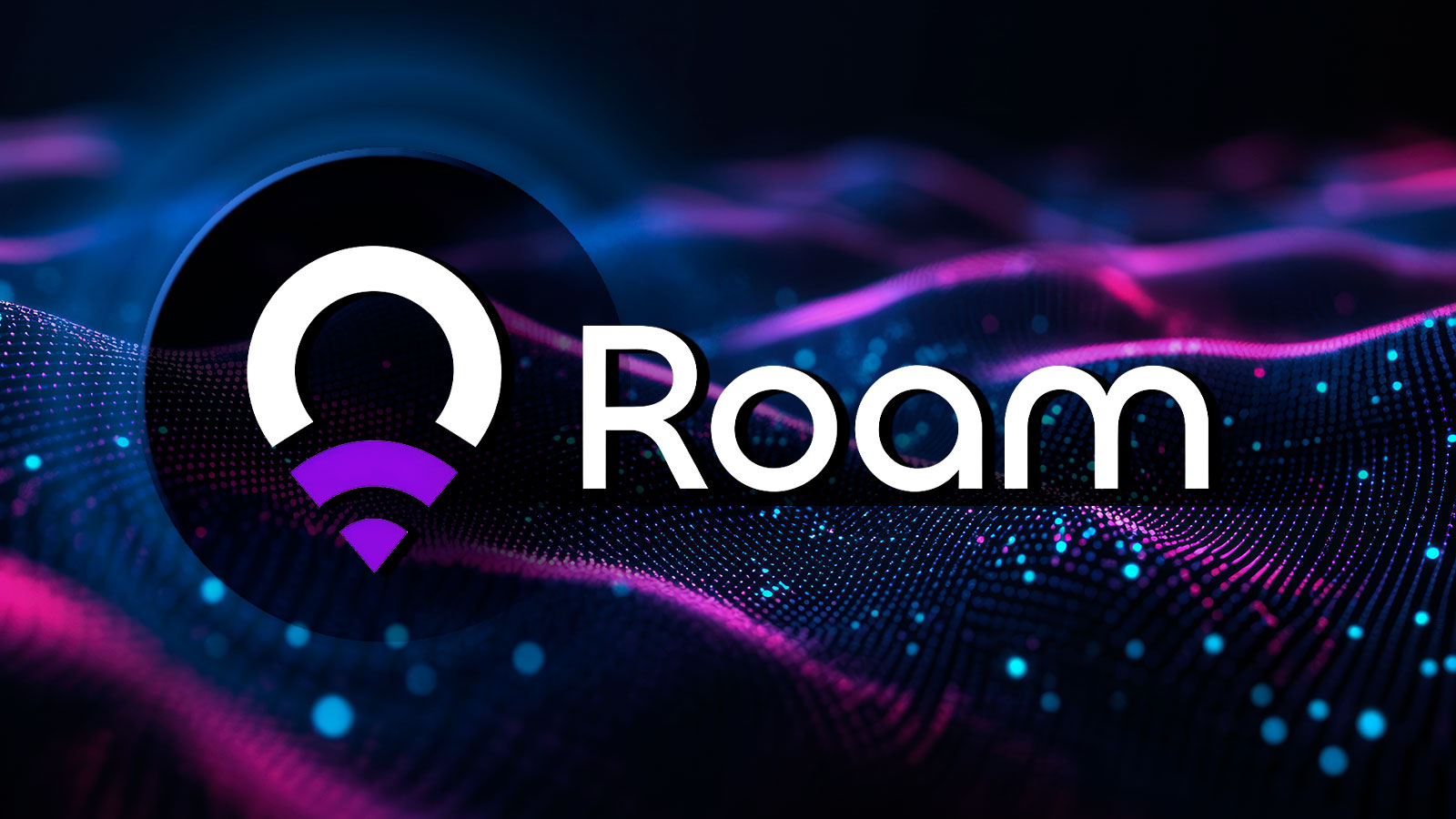Roam, a decentralized global open wireless network that includes Wi-Fi nodes, Wi-Fi router hardware and eSIM modules, solidifies its dominance in the thriving segment. In early December 2024, it achieved the status of the largest and most decentralized DePIN globally.
Roam now world’s largest DePIN by node count, DePINScan says
On Dec. 3, 2024, Roam, a comprehensive DePIN ecosystem for wireless communications, accomplished a major adoption milestone. As registered by DePINScan tracker, Roam became the #1 DePIN ecosystem by aggregated node count. Roam has maintained this top position, and now, with over 1 million nodes globally, it has achieved a significant accomplishment. The product logs almost 900,000 check-ins daily and 1+ million Wi-Fi points connected.

This accomplishment is very far from being the only one for Roam in Q4, 2024. Supporting data shows that since the launch of Roam eSIM, the user base grew from 750,000 to 1.5 million in less than 50 days.
Additionally, Roam Points will be interoperable with major international airlines and telecom operators, allowing users to redeem rewards such as gift cards. Purchasing hardware products like Roam WiFi routers also provides users with additional incentives to further speed up the adoption flywheel.
The Roam Growth product has been launched, serving as an innovative platform that transforms network devices into powerful multifunctional hubs. By providing resources such as Internet bandwidth, secure connections for virtual private networks, and advertising space on public WiFi, participants can contribute to the network’s growth while earning money proportionally to their contribution.
Becoming a Roam router owner is the first step toward unlocking Roam Growth features and deeply engaging with the ecosystem. The Roam Loan Program, the initial phase of Roam Growth, enables users to acquire routers with a low entry barrier through financing support from Huma Finance. Users can choose between stablecoin payments or SOL deposits, with the loan repaid through a combination of airdrop rewards and mining rewards.
Whether you are an investor looking to get involved in the next big tech wave, a miner with extra bandwidth to share, or a business looking to enhance your revenue streams, Roam Growth is designed to offer a straightforward, credible and scalable way to generate predictable income.
As a DePIN project within Web3, Roam has surpassed 1.7 million users, solidifying its position as a leader in the DePIN track. With services closely tied to daily life, Roam has become a real-world example of large-scale adoption of Web3 applications.
Roam routers, Wi-Fi nodes and Roam eSIM: Strengthening product stack
All directions within the Roam ecosystem registered impressive growth periods. Through its Roam routers, Wi-Fi nodes and Roam eSIM, it has attracted a large number of users in a short time by offering low-cost, secure and convenient solutions. Additionally, its incentive mechanism enhances user retention, making it a typical case of Web2 and Web3 integration with mass adoption.
For those with a Web2 or telecommunications background, it is evident that Roam leverages innovative approaches and blockchain technology to break free from traditional models, positioning itself as a telecom application originating in Web3 but serving society as a whole.
To accelerate this vision, Roam recently unveiled its 2025 roadmap, outlining 11 key updates spanning product development, technology, and community ecosystem growth. The roadmap highlights plans to expand application scenarios through initiatives like Roam Loan, Roam Growth Plus, and Roam Discovery. Additionally, to enhance the network experience, Roam will introduce a new generation of miners, including devices from certified third-parties. The rollout of a long-term eSIM and an update to the Roam App will provide more seamless connectivity and additional rewards. Together, these efforts will further strengthen the ecosystem’s engagement.
By combining Wi-Fi nodes, Wi-Fi router hardware and eSIM, Roam achieves the largest-scale wireless communication coverage, showcasing the disruptive potential of DePIN for the tech segment.
AI integration in DePIN on Roam’s agenda
In April 2024, MetaBlox, officially rebranded as Roam and migrated its ecosystem to the Solana mainnet. All on-chain transactions on the Roam network, including user check-ins, DIDs (Decentralized Identifiers) and VCs (Verifiable Credentials), are now uploaded to the Solana blockchain. This migration also enabled Roam to provide privacy-preserving data support to dApps within the Solana ecosystem.
In Q1, 2024, the platform yielded extra funding from Samsung Next. In the coming months, Roam aims to accelerate the rollout of its Open Wireless Network, solidifying its leadership in decentralized wireless ecosystems. This initiative will form a foundational network for global users, device and data connectivity, offering secure and convenient solutions for smart homes and industrial IoT.
Also, Roam plans to collaborate with multiple AI-focused projects, further expanding its applications in intelligent connectivity. According to the statements of its team, Roam’s compatibility with AI presents immense potential. The underlying data structures of DePIN and blockchain make them highly compatible with AI technologies.
Roam’s role in expanding OpenRoaming™ and its future impact
Launched at the end of 2021, Roam was designed to address challenges in the Wireless Broadband Alliance’s (WBA) OpenRoaming™ initiative, which aims to provide seamless, secure Wi-Fi globally. In just three years, Roam has become a key player in promoting OpenRoaming™, with the WBA expecting it to contribute to 20% of the global node growth in the coming years.
With its rapidly growing Wi-Fi node count and user base, Roam has captured the attention of traditional telecom operators, who see its potential to revitalize the industry. As Roam’s ecosystem continues to expand, it’s poised to attract both Web2 and Web3 users, enhancing Wi-Fi security and accessibility worldwide.










